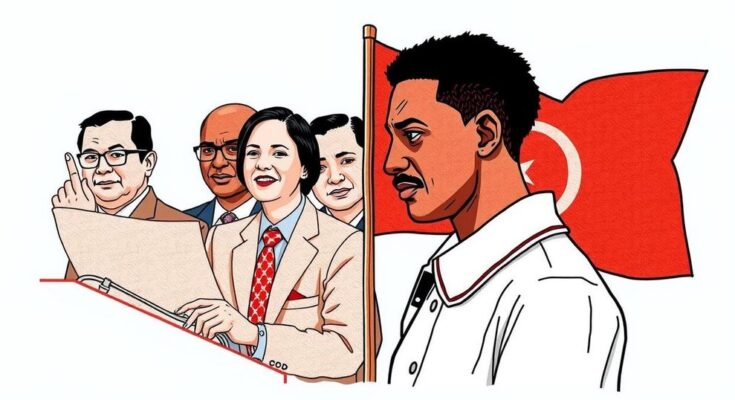The UN has proposed a plan to resolve Libya’s political deadlock and facilitate overdue presidential elections, emphasizing the need for inclusivity and expert dialogue. Recognizing the urgency felt by Libyans for political reform, the initiative aims to restore legitimacy to institutions and address critical challenges such as arbitrary detentions and regional instability.
The United Nations has introduced a new plan aimed at addressing the political deadlock in Libya and facilitating essential presidential elections. This initiative, unveiled by Stephanie Koury, Deputy Special Representative for Libya, seeks to restore legitimacy to Libyan institutions following years of internal conflict and division. A key aspect of the plan involves creating an advisory committee composed of experts to refine electoral laws and develop a comprehensive roadmap for elections, fostering inclusivity, especially among youth and women.
In light of the anticipated elections, the UNSMIL intends to gather stakeholders for structured dialogue to establish a unified national vision for Libya’s future. The country has experienced a decade of political instability, with a fractured government system since the overthrow of Muammar Gaddafi in 2011. Despite previous hopes for landmark elections in December 2021, those plans were derailed due to disputes regarding candidate eligibility.
Ms. Koury recognized the Libyan populace’s strong desire for national elections and recently praised the successful completion of local elections. She emphasized the urgency for genuine political change, noting that the current status quo has become untenable due to the erosion of institutions into competing factions. Furthermore, she outlined critical challenges to be addressed, including the recent reinstatement of the Central Bank’s Board of Directors and the necessity for transparency in its operations.
Arbitrary detentions continue to pose serious human rights concerns, with a pressing need for investigations into recent deaths in custody. Additionally, regional instability, particularly the influx of Sudanese refugees due to conflict in Sudan, exacerbates the challenges Libya faces. Ms. Koury urged international cooperation to leverage this moment for a sustained political resolution, insisting that success hinges on the commitment of Libyan leaders to foster unity and reject divisive actions. The aspiration of the Libyan people for meaningful change remains at the forefront, as they require unified support to facilitate transformative progress and conduct elections.
Libya’s political landscape has been fraught with instability since the ousting of former leader Muammar Gaddafi in 2011. This upheaval has led to the emergence of two rival governments, further complicating efforts to restore order and democratic governance. Over the years, various attempts to hold national elections have failed, primarily due to disputes over electoral laws and candidate qualifications. With the UN’s recent proposal, there is renewed hope that a structured approach involving national dialogue and expert participation could pave the way for legitimate elections and restore the integrity of governmental institutions.
The United Nations’ new initiative represents a critical step toward resolving Libya’s protracted political crisis and underscores the imperative for inclusive dialogue and collaboration among Libyan factions. By establishing a framework for electoral reform and fostering broad participation, the UN aims to promote stability and legitimacy within the country’s governance. It is crucial for both national stakeholders and the international community to commit to this process to support the Libyan people’s desire for change and progress.
Original Source: news.un.org




